DENVER — Denver health inspectors shut down 58 restaurants and 52 food trucks last year for operating with a health hazard.
Investigator Michael Roy with Denver’s Department of Public Health and Environment spends his days behind kitchen doors in restaurants searching for mistakes or immediate health risks that could lead to food poisoning.
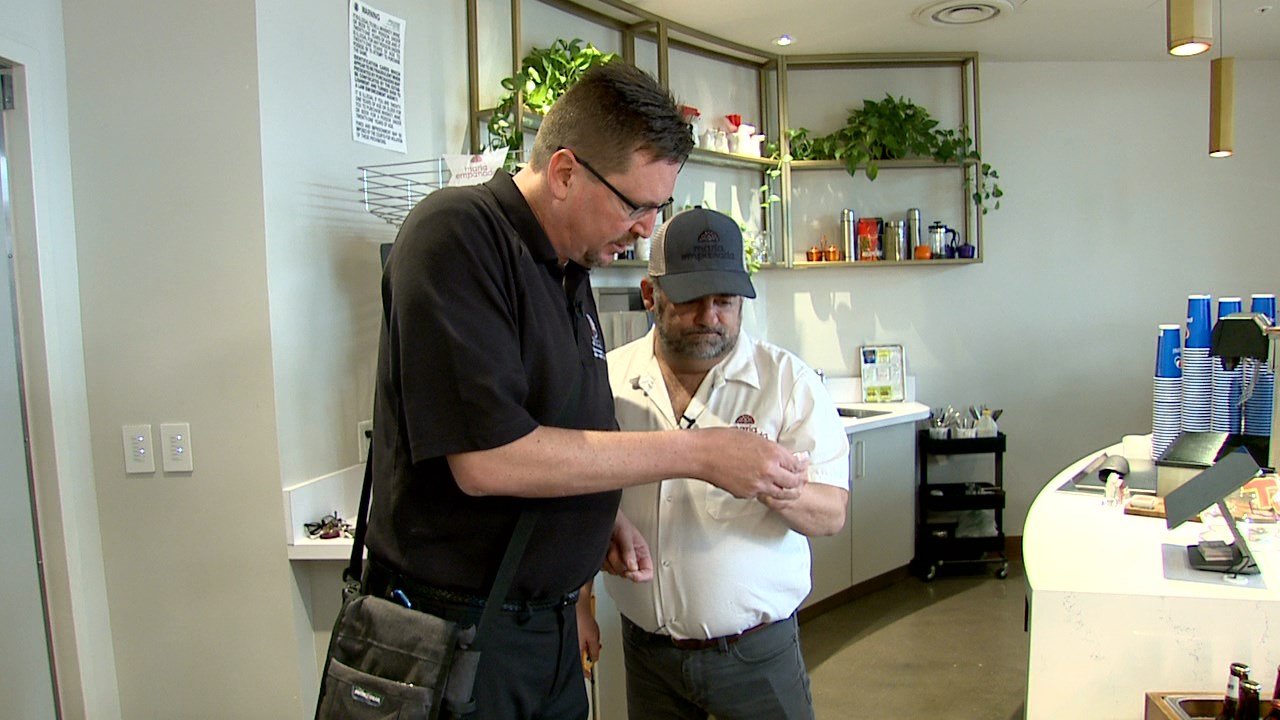
“We had to close 110 restaurants due to them operating with an intimate health hazard. That is something the health department deems as a risk that is really just waiting to get the public sick,” said Roy.
The department received and investigated 268 food borne illness complaints last year.
Roy looks for issues like employees not washing their hands.
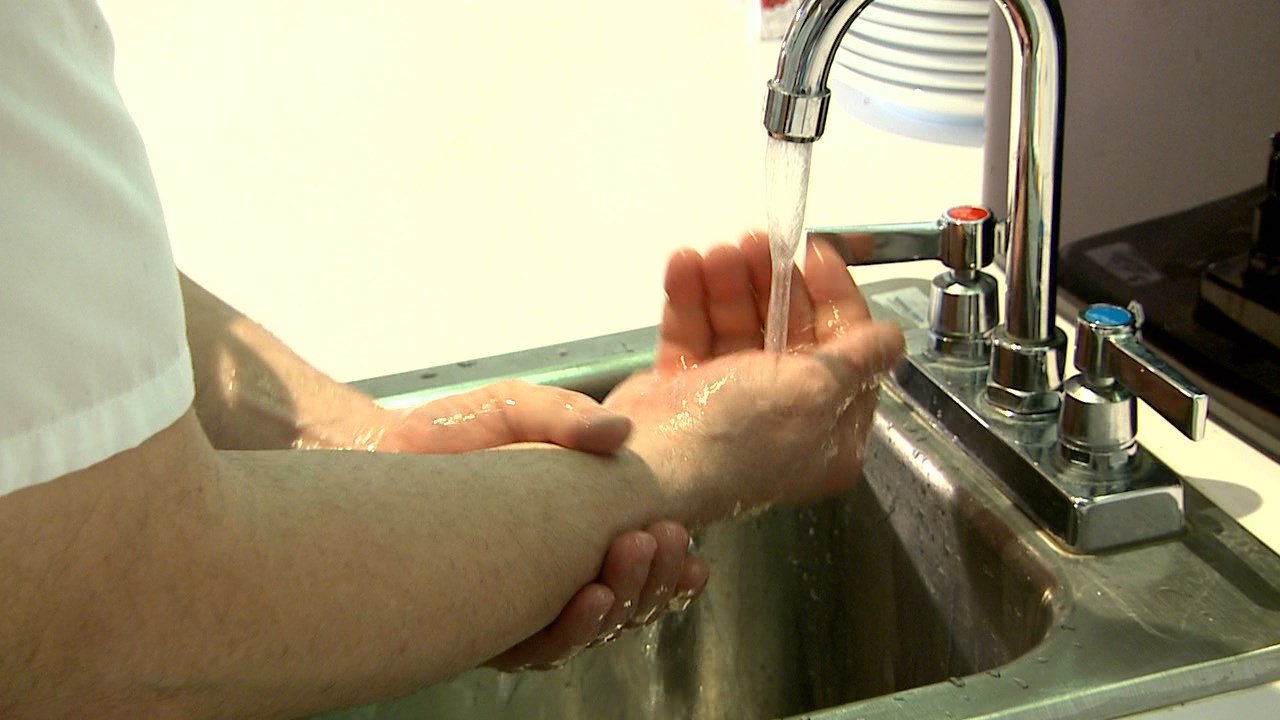
“When you’re washing your hands, the regulation is the hot water reaches 100 degrees Fahrenheit within 30 seconds of being activated,” said Roy. “Making sure to get the tops of the hands, in between the fingers, the fingernails.”
Health code recommends hand washing for at least 20 seconds, removing everything off the skin.
“The goal isn’t to kill bacteria, it’s to get everything off your hands,” said Roy.
Denver’s inspectors told the FOX31 Problem Solvers the top violations include:
- Cold holding below 41 degrees
- Smoking, eating and drinking among food
- Weak or toxic sanitizer
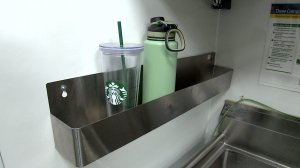
A drink holder keeps employee drinks away from food
At Maria Empanada’s location on Platte Street in Denver, the pastry-like turnovers are filled with meats and cheeses and cooked to 165 degrees and held above 135 degrees until sold.
“Any foods that rise above 41 degrees on a cellular level are going to start multiplying and growing in that temp danger zone. Anything above 135 degrees won’t grow,” said Roy.
Health experts call between 41 degrees and 135 degrees the “danger zone” since that is when bacteria pathogen growth takes place on food.
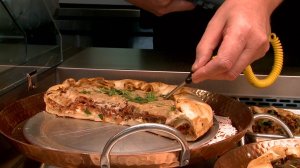
“The challenging part of that is freezing is 32 and the bottom end of the temperature danger zone is 41 degrees, so that gives you nine degrees to play with to keep those cold foods safe, which is a challenge for operators,” said Roy.
Another issue in the kitchen is keeping food surfaces safe. Regulation requires operators to have a chemically correct balance of sanitizing solution ready when food is being prepared.
“A misconception I see a lot of times in the food industry, they put a red bucket out and think it’s going to last all day in the kitchen and be effective. In reality, after two to four hours, it’s not at the right concentration to do its job correctly,” Roy said.
The inspector also said if the sanitizing solution concentration is too strong, then it will not evaporate, leaving a toxic residue on surfaces.
Health experts say they are not the only ones who can call out code issues. Customers can look for problems too, including:
- Visibly sick employees
- Employees not washing hands
- Bare-hand contact with ready-to-eat food
- No hot water in restrooms
Restaurants are required to have a sick policy for employees.
Kitchen manager Jose Marques told Roy their policy is easy.
“If employees come in sick, we have only one policy: Then you go home,” Marques said.
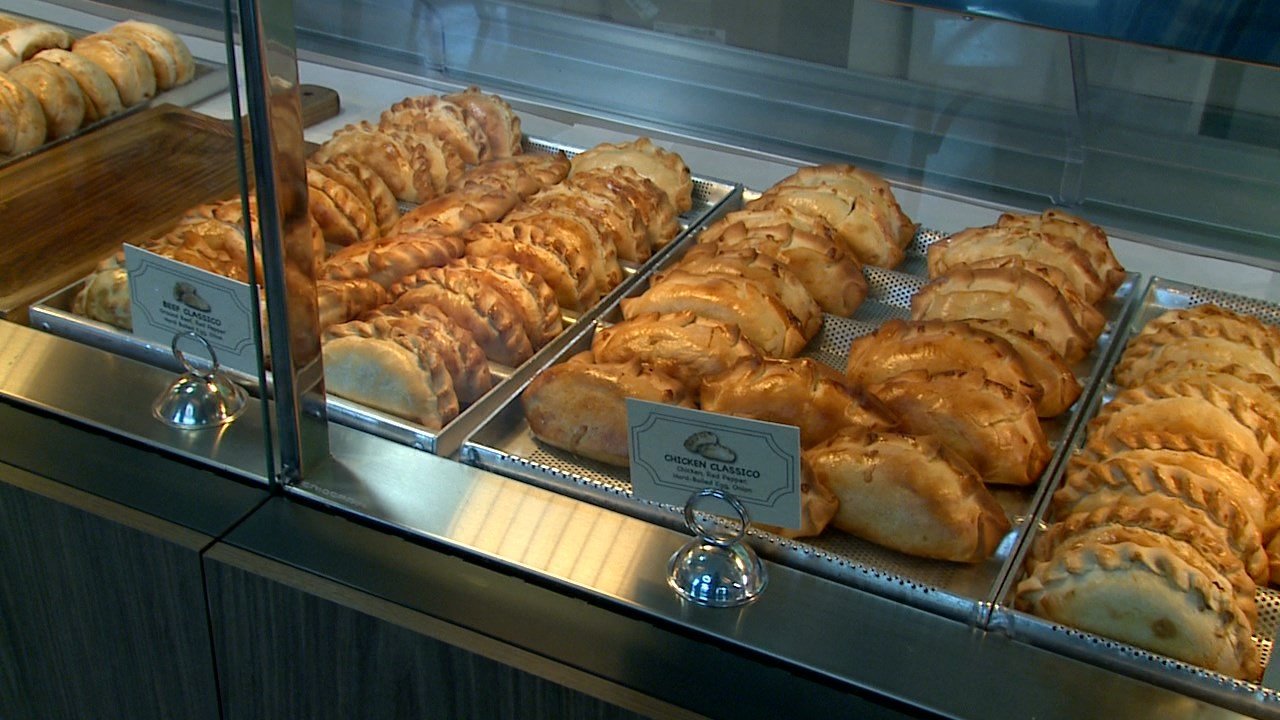
The inspectors also look for how food is stored so cross contamination does not happen — like eggs or meat dripping on ready-to-eat food stored below it.
Roy said the kitchen at Maria Empanada was “very clean.”
The restaurant scored a perfect inspection, marking two perfect regular health inspections in a row.
For the restaurant owner, perfect inspections are almost expected.
“It’s a religion here. It is part of our culture,” said owner Lorena Cantarovici. “The best experience has to do with the food and that means, how do you treat the food in the process until the plate comes to the table?”
To check out how your favorite restaurant scored during recent health inspections, visit the following links:
